Writing, rhetorics and literacies (WRL) at ASU works on the cutting edge of technology, language use, and design. Across all of our programs, WRL faculty teach strategies for inquiry: the ways that communication creates knowledge, and how texts, meanings, and communication are constructed, circulated, reacted to, and repurposed over time and across space. We offer bachelor’s, master’s and doctoral programs that put the humanistic impulse in conversation with the arts, sciences, education and business, and produce graduates with intellectual agility and deep social, cultural, and technological literacy.
Importantly, our programs draw on the interdisciplinary nature of rhetoric and its rich methodological affordances to tackle the challenging questions of our day. How do we develop on-the-ground solutions that leverage the expertise and experience of community members and professionals alike? To foster this work, WRL pairs its coursework with interactive learning experiences in areas ranging from internships, problem-based and project-based learning, and self-directed immersive experiences, all of which are designed to train students to communicate effectively in a range of print, oral, and digital texts.
Please contact Program Coordinator, Kendra Bloodworth, with questions regarding the Writing, Rhetorics and Literacies Area. For questions related to a specific program, please contact the appropriate undergraduate advisor or graduate advisor.
View our core faculty.
Scroll down to learn more about our programs and news.
Degree Programs
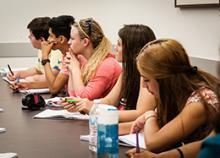
English (Writing, Rhetorics and Literacies) (BA)
In the Bachelor of Arts program in English with a concentration in writing, rhetorics and literacies, students learn strategies for inquiry and action.

Master of Arts in English (Writing, Rhetorics, and Literacies)
The Master of Arts program in English offers multiple pathways of learning and a choice of modalities (in-person and online) so that every student can find the best path through the program.
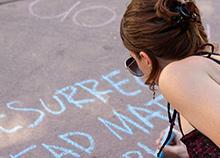
PhD English (Writing, Rhetorics, and Literacies)
The Doctor of Philosophy program in English with a concentration in writing, rhetorics and literacies promotes the study of rhetorical strategies, production, distribution and interpretation of oral, written, digital, visual, discursive, material and symbolic texts.
Minors and Certificates
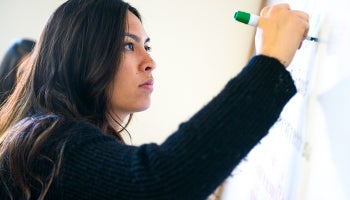
Writing, Rhetorics and Literacies (Minor)
In the minor program in English, students gain the knowledge and skills to improve their writing and to enhance their ability to read and think analytically and become critical consumers of media.

Environmental Humanities, Certificate
The environmental humanities certificate program is for students who are interested in humanities-based approaches to the current global environmental crisis, a vital area of study.
Cross-Area Programs
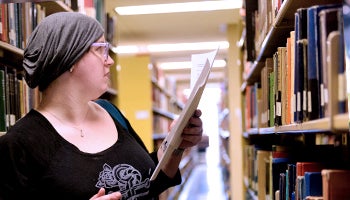
English, BA
The Bachelor of Arts program in English is offered completely online.
Students supplement a core focus on critical studies and analysis with courses in literature, linguistics, film and media, and creative and nonfiction writing to complete a robust program of study.
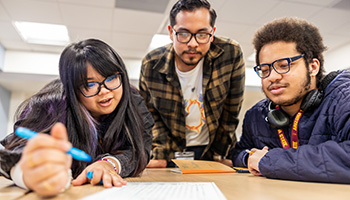
English (Narrative Studies), BA
In the Bachelor of Arts program in English with a concentration in narrative studies, students explore the varied forms, contexts and cultures of narrative.

Culture, Technology and Environment, BA
The Bachelor of Arts program in culture, technology and environment is a collaborative program offered by the humanities division in The College of Liberal Arts and Sciences.
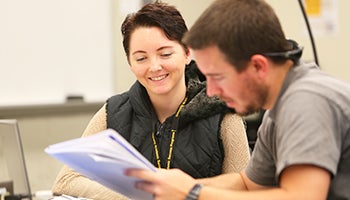
English (Minor)
In the minor program in writing, rhetorics and literacies, students learn to create new knowledge and reason, and to read, write and act in robust and significant ways to meet new challenges of the present and the future.
